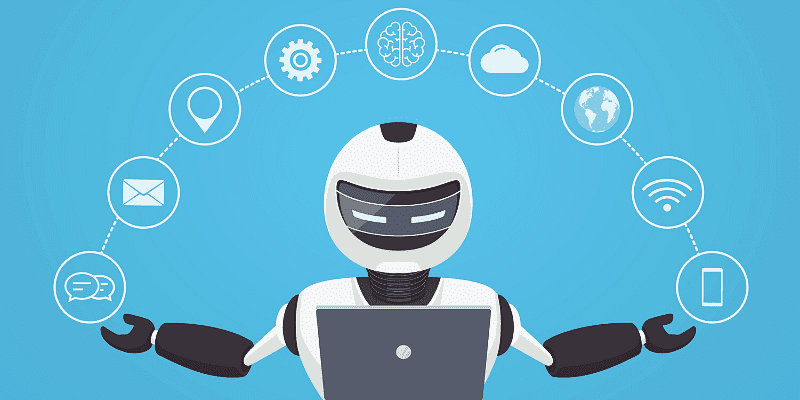Introduction
In
the realm of digital marketing,
providing exceptional customer service has become a key differentiator for
businesses. As technology continues to advance, the integration of artificial
intelligence (AI) has paved the way for significant transformations in customer
service. One notable advancement is the rise of AI-powered chatbots, which are
revolutionizing the way businesses interact with their customers. These
intelligent virtual assistants are enhancing customer experiences, streamlining
operations, and driving business growth. In this blog post, we will explore how
AI-powered chatbots are transforming customer service in the digital marketing
landscape.
1. Enhancing Customer Engagement
AI-powered
chatbots enable businesses to offer real-time and personalized interactions
with their customers. By leveraging natural language processing and machine
learning algorithms, chatbots can understand customer queries and respond with
relevant and accurate information. They can engage in conversations, provide
recommendations, and guide customers through the purchasing process. This level
of personalization fosters meaningful connections between businesses and their
customers, leading to improved engagement and brand loyalty.
2. 24/7 Availability
Unlike
traditional customer service channels, AI-powered chatbots are available 24/7,
providing round-the-clock support to customers. This availability ensures that
customers can receive assistance whenever they need it, regardless of time
zones or geographical location. By addressing customer queries in real time,
businesses can significantly reduce response times and enhance overall customer
satisfaction. The constant availability of chatbots also reduces the workload
on human customer service agents, allowing them to focus on more complex tasks.
3. Efficient Issue Resolution
AI-powered
chatbots excel at quickly resolving common customer issues. By analyzing vast
amounts of data and utilizing machine learning capabilities, chatbots can
understand customer problems and provide instant solutions. Whether it's
answering frequently asked questions or troubleshooting technical difficulties,
chatbots can offer step-by-step guidance and resolutions. This efficiency not
only saves customers' time but also reduces the burden on customer service
teams, freeing them to tackle more complex issues that require human
intervention.
4. Personalized Recommendations
One
of the significant advantages of AI-powered chatbots is their ability to
provide personalized recommendations to customers. By analyzing past customer
interactions and purchase history, chatbots can offer tailored product
suggestions, cross-selling opportunities, and promotions. These personalized
recommendations enhance the customer experience by presenting relevant options,
increasing the likelihood of conversion, and driving sales. Additionally,
chatbots can learn and adapt to customer preferences over time, continuously refining
their recommendations.
5. Data Collection and Analysis
AI-powered
chatbots serve as invaluable tools for data collection and analysis. Every
customer interaction with a chatbot generates valuable insights that businesses
can leverage to improve their products, services, and marketing strategies.
Chatbots can gather customer feedback, identify trends, and analyze sentiment,
providing businesses with actionable data for decision-making. This data-driven
approach enables businesses to better understand their customers' needs and
preferences, allowing them to make informed decisions and refine their marketing strategies accordingly.
6. Cost and Resource Optimization
Implementing AI-powered chatbots in customer service operations can significantly reduce costs and optimize resources for businesses. Chatbots can handle a large volume of customer inquiries simultaneously, eliminating the need for businesses to hire and train additional customer service representatives. This cost-effective solution not only saves money but also ensures consistent service quality and reduces the risk of human errors. Moreover, chatbots can automate repetitive tasks, freeing up human agents to focus on more complex and high-value interactions.

